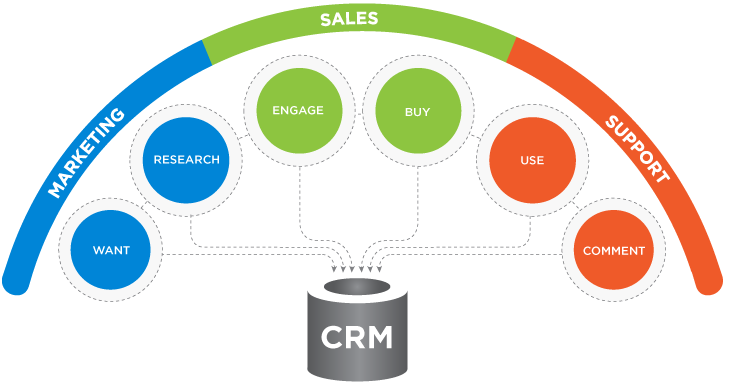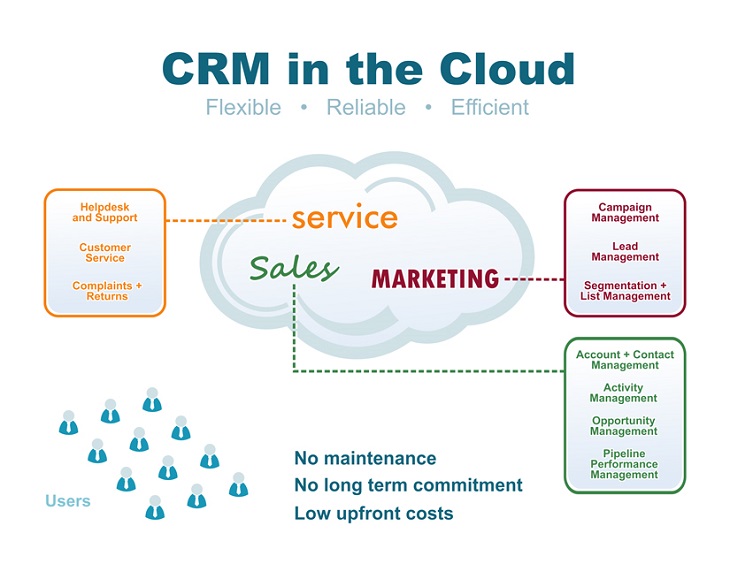The concept of “heaven” has been debated by countless philosophers throughout history and there are various theories on size, temperature and location. While there is some debate on the specifics, most people agree that heaven is where various personalities and types can co-exist in complete peace. Until now, that concept was a bit hard to swallow.
Heaven is a place on Earth? The story is an old one: sales and marketing often butt heads. Sales doesn’t see the point of marketing campaigns and blames marketing for lack of leads. Marketing blames the sales department for not properly implementing marketing strategies or driving the campaign in the correct direction. However, all this strife can be avoided with cloud-based customer relationship management (CRM) software.
The CRM: Customer relationship management systems are nothing new. As far back as the 1980’s, database management systems were tracking customer behavior to send out personalized communication for better sales. This software continued to mature, but it didn’t really take a large step forward until companies like Salesforce and Microsoft Dynamics began to create CRM that integrated customer data with other software like Outlook. However, the best was yet to come.

The Cloud: The cloud platform is quite powerful and Software as a Service (SaaS) has only shown the greater potential of working straight out of the cloud. Applications like Outlook and Office are available on the web as a scalable application that can be accessed anywhere. Since the products don’t technically exist on computers, there is no need to upgrade the software. Suddenly organizations aren’t investing fortunes on software. The cloud offers fast, cheap freedom to large organizations and SMBs as well.
The Connection: Cloud-based CRM has been available in some form since 2007, but recent improvements to cloud platforms have completely changed the game. Suddenly SaaS allows access to customer data 24/7 from virtually any mobile device. That means that CRM can be used by small and medium sized businesses (SMBs) as well as giant companies with smart phones. Smart Point of Sale (POS) systems allow every sale to be monitored and stored in the cloud. Social Media and Big Data work together so that customers’ personal data is more readily available, making customer touch-points that much easier to track. Now the sales department is receiving reliable leads and truly customized customer information. The marketing department can easily trace the success rate of their campaigns because of tracked sales and touch-point interactions.

The Future: CRM is growing and it’s only going to get bigger. In 2012, CRM grew by 12.5%. Gartner predicts $36 billion will be spent on the industry by 2017. Companies have taken notice and they continue to expand into the market. In fact, IBM is spending $1.2 billion this year to expand its cloud network. Everyone is banking on cloud-based CRM. Can your organization really afford to ignore that?
The easy part is accepting the cloud-based CRM. Now comes the hard part—how do you find the right CRM software and begin to make all that data work for you? Well, that’s where we come in. If you want more information on cloud-based CRM, please contact us for more information.




